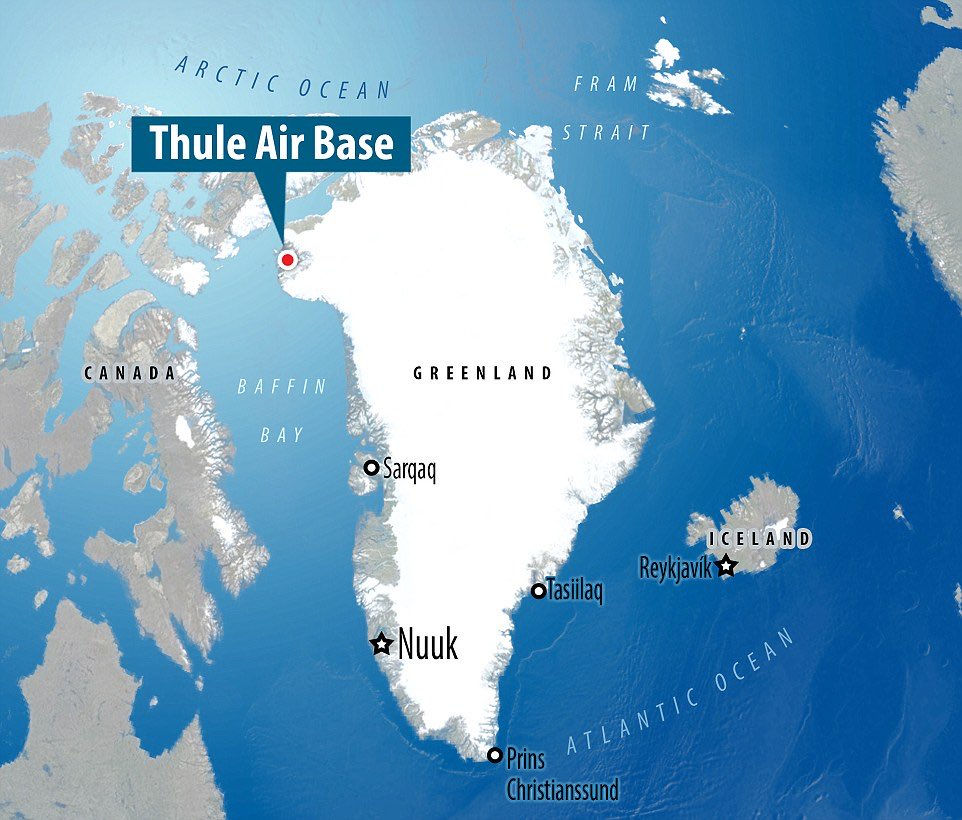Why Trump Wanted Greenland: A Legal and Geopolitical Analysis
- M.R Mishra

- Jan 28, 2025
- 3 min read
January 2025, news broke that then-President Donald Trump had expressed interest in purchasing Greenland, a self-governing territory of Denmark. The revelation sparked a mix of amusement, skepticism, and serious geopolitical debate. While the idea of purchasing an entire territory may seem far-fetched, it is not without historical precedent.
Trump’s interest in Greenland can be analyzed through the lens of international law, geopolitics, and economic opportunity.
Firstly, Greenland’s location in the Arctic makes it a critical piece of real estate in an increasingly contested region. As climate change accelerates the melting of polar ice, the Arctic is becoming more accessible for shipping, resource extraction, and military operations.
From a legal standpoint, the Arctic is governed by a complex web of international agreements, including the United Nations Convention on the Law of the Sea (UNCLOS). While the U.S. has not ratified UNCLOS, it adheres to many of its principles. Owning Greenland would have given the U.S. a stronger claim to Arctic resources and shipping routes, potentially altering the balance of power in the region.
The U.S. already operates the Thule Air Base in Greenland, a critical outpost for missile defense and space surveillance. Acquiring Greenland would have expanded U.S. control over the Arctic, providing a strategic advantage over rivals like Russia and China, both of which have been increasing their presence in the region.

Natural Resources and Economic Opportunities
Greenland is rich in natural resources, including rare earth minerals, oil, and natural gas. These resources are becoming increasingly valuable as global demand for technology and renewable energy grows. From a legal perspective, ownership of Greenland would have transferred sovereignty over these resources to the U.S., subject to international law and any existing agreements with Denmark. However, the extraction of these resources raises environmental and ethical questions. Greenland’s government has emphasized sustainable development, and any U.S. acquisition would have required navigating these concerns while complying with international environmental agreements.
Countering Chinese Influence
Secondly, China’s growing interest in Greenland has raised alarms in Washington. Beijing has sought to invest in Greenland’s infrastructure, including airports and mining projects, as part of its Belt and Road Initiative. From a legal and geopolitical standpoint, this poses a challenge to U.S. interests in the Arctic. Acquiring Greenland would have been a bold move to counter Chinese influence, but it would have required careful negotiation with Denmark and Greenland’s government. Under international law, Greenland’s self-governing status means that any transfer of sovereignty would require the consent of its people, as outlined in the United Nations Declaration on the Rights of Indigenous Peoples.
The U.S. has a history of acquiring territory through purchase, including the Louisiana Purchase (1803) and the Alaska Purchase (1867). These transactions were governed by international treaties and required the consent of the selling party. In the case of Greenland, Denmark holds sovereignty over the territory, but Greenland’s self-governing status complicates matters. Under the Danish Constitution,
Greenland has the right to self-determination, and any transfer of sovereignty would require a referendum.
Historically, the U.S. has attempted to acquire Greenland on multiple occasions:
1867: Secretary of State William H. Seward considered purchasing Greenland after acquiring Alaska.
1946: President Harry S. Truman offered $100 million in gold to Denmark for Greenland, but the offer was rejected.
Cold War Era: The U.S. secured military access to Greenland through agreements with Denmark, establishing the Thule Air Base.
These attempts highlight the strategic importance of Greenland but also underscore the legal and diplomatic challenges of acquiring it.
Denmark’s Prime Minister, Mette Frederiksen, dismissed Trump’s proposal as “absurd,” while Greenland’s government emphasized its commitment to self-determination. Under international law, the principle of self-determination grants Greenlanders the right to decide their political status.
Any attempt to purchase Greenland would require
Negotiations with Denmark, which holds sovereignty over Greenland.
Consent from Greenland’s government and people, likely through a referendum.
Compliance with international law, including the UN Charter and relevant treaties.
Donald Trump’s interest in Greenland reflects the territory’s growing strategic and economic importance in an era of climate change and geopolitical competition. However, the proposal faced significant legal and diplomatic challenges, including Greenland’s right to self-determination and Denmark’s refusal to entertain the idea.
While the idea of purchasing Greenland may seem like a relic of 19th-century territorial expansion, it highlights the evolving dynamics of international law and geopolitics in the 21st century. As the Arctic becomes a focal point of global competition, the legal and strategic questions raised by Trump’s proposal will remain relevant for years to come.







Comments